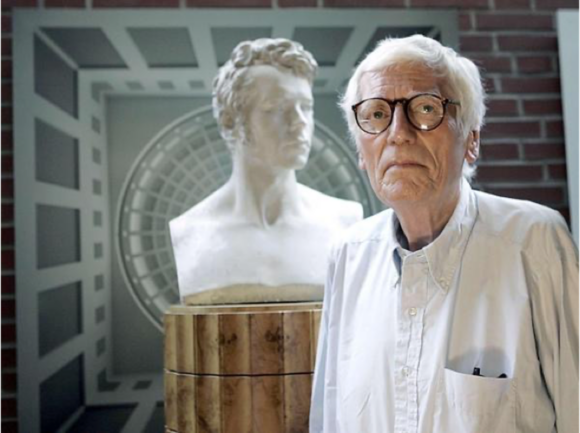
Call for Papers Architectural Theory Review on Untimely Teachers: Recovering Postmodernism’s Anachronic Pedagogies

hortence is the research centre for Architectural History, Theory and Criticism of the Faculty of Architecture La Cambre-Horta of the Université libre de Bruxelles

CFP For a Special Issue of ATR (vol. 27 no.2), edited by Wouter Van Acker and Steven Lauritano. Deadline: 8 May 2023 https://bit.ly/RecoveringPostmodernismsAnachronicPedagogies,
Untimely Teachers: Recovering Postmodernism’s Anachronic Pedagogies
A special issue of Architectural Theory Review (vol. 27, no. 2), edited by Steven Lauritano (Leiden University) and Wouter Van Acker (Université libre de Bruxelles).
During the 1960s and 70s a re-examination of architectural history unfolded in dialogue with growing student dissatisfaction and organized protests in architecture schools around the world. Looking at an historical building, could one hope to re-discover not only how to build, but also how to learn and, by extension, how to teach? Seeking answers to these questions, a group of educators staked out their position in a growing controversy over how architects should learn from history, and consequently, how it should be taught. While history was considered by some to be an impediment to architectural design, others re-centered the role of historical narrative and historical understanding in design ideation. Whether out of sympathy with dissatisfied pupils, or as a counter reaction, certain architects and historians looked past the mainstream protagonists of modernism (i.e. their own teachers) in search of new, untimely mentors.
Beyond the creative redeployment of precedents, the turn to untimely teachers involved re-reading the work of often unfashionable and forgotten architects under the pressure of the pedagogical crisis. Oswald Mathias Ungers’s studios at Cornell sought to extract compositional lessons from Karl Friedrich Schinkel which were “controversial and alive as ever”; students of Bruno Zevi re-read the architecture of Michelangelo by building “critical models” for the 1964 exhibition co-curated by Paolo Portoghesi; and Julius Posener reimagined his modernist design pedagogy in response to ancient Malay sources. Untimely teaching unfolded through a range of practices including model-making, full-scale mock-ups, studio excursions and the development of techniques for redrawing historical examples and fragments. Collectively, these experiments challenge common narratives about the facile and eclectic mining of history under postmodernism. Simultaneously, they suggest a global dynamic, wherein the lessons of history traveled across national borders, continents, and hemispheres to confront a student body newly concerned with identity-formation and its relation to design.
Recent research on architectural pedagogies in the post-war years contain many leads as to how the postmodern concept of “history as a teacher” entered architecture schools, parallel to new formalist, activist, and environmental approaches. Little existing research, however, documents the patterns and directionality of transferred ideas between history lecture halls and design studios during a period when the turn to archaic teachers triggered intense debates about historicist form-making and non-figurative ways of integrating history into design.
This issue of Architectural Theory Review invites contributions that investigate anachronic pedagogical experiments, the untimeliness of which is less concerned with the aesthetic shock of the old as provoked by the 1975 MoMA exhibition “The Architecture of the Ecole des Beaux-Arts,” and more with imaginary didactic dialogues staged around the work of neglected luminaries. It proposes to understand these encounters as embracing the disruptive potential of untimely ideas, or methods that work counter to the present for the benefit of a time to come. Proposals are especially welcome that consider pedagogical experiments from those regions of the world that have been omitted from recent histories of post-war architecture and those case studies located in schools for which the institutional history has yet to be written. We invite papers that examine unforeseen ways of reading antiquated designs and outmoded teachers, of “interpolating time,” and as such, challenging the prevailing theorizations of postmodern time consciousness.